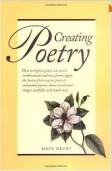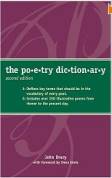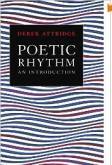Learn to Write Better Poetry
If you've spent any time at all at Passions, you already know our philosophy. Poetry is about beauty and Truth, and everyone with a still-beating heart is a Poet. We all have something important to say.
But that doesn't mean we can't all learn to be better poets. No one would even think about building their own home without first learning to hold a hammer. Well, poetry has tools, too, and we can greatly improve our work by learning to use them.
This section of the web site is about learning the craft of poetry, so that our art can better express our Truths. It's about learning how to hold a hammer.
Poetry On The Net
There are thousands, probably tens of thousands, of web sites on the Internet dedicated to sharing poetry. And only a handful that help you learn better ways to write it. These are the few good ones we've found.
All Links last verified September 2021
Atlanta, Georgia, including: Revision and Editing, Avoiding Plagiarism, and Style.
Tools On The Net
While nothing will ever replace a good ear and an open heart, writers still find other tools to be valuable, too.
All Links last verified September 2021
Rhyming Dictionaries
Thesauri / Synonym
Phrase Dictionaries & Quotations
Acronym Dictionaries
English Grammars
- Free Online English Lessons by Englishpage.com
- Internet Grammar of English, University College London
- Lynch, Guide to Grammar and Style
- Common Errors in English
Encyclopedias
If you know of, or find, any other good places on the web devoted to learning the craft of writing poetry, please Email Us and we'll add it to this list.
Poetry On The Shelf
There is, in the end, only one way to learn how to write. By writing. But "practice makes perfect" is only true if your practice is perfect. Imperfect practice will only keep you writing the same imperfect things. These books are the ones we use, the ones we've discovered can put the perfection back into your practice.
These links will take you to the famous amazon.com web site, so you might want to bookmark this page before you leave. Also note, we are listing the prices here so you'll have an indication of relative expense - but amazon can (and often does) change their prices.
All Links last verified September 2021

Click to Order
Recommended
Creating Poetry
by John Drury
If you buy only one book on poetry, this is the one! In a style that is both erudite and engaging, Drury covers virtually everything you need to know to vastly improve your skills as a poet. So many of today's writers let their own poetic preferences dominate their material - but not Drury. Whether you write in meter and rhyme, free verse or blank, you'll find a treasure chest of invaluable information and insight. And, of course, lots of great examples.
At a Glance
- Preparing - developing your poetic sensitivity
- Language - learning the fundamental tools of poetry and using them effectively
- Sight - refining sight and insight, to make your poetry come alive within the mind's eye. And the heart's eye, too.
- Sound - sensitizing yourself to the music of words, both singly and in combination
- Movement - developing the rhythmic qualities that make poems sing, shout, march, croon, or whisper
- Voice - becoming aware of the fine nuances of how the words are said and connected
- Finishing - bringing each poem to a successful - and satisfying - completion
The Poetry Dictionary
by John Drury
This book includes a comprehensive list of 284 topics, covering everything from simple meter and enjambment to villanelles and pantoums.
But it's far more than just a list or dry dictionary. Drury, both a poet and English professor, is without question one of my favorite authors (see book above), and writes in a style that is both easy to understand and a joy to read. With the vast majority of terms he covers, Drury also includes multiple examples, and you'll likely agree the poetry alone is worth the price of the book.
Poetic Rhythm : An Introduction
by Derek Attridge
In spite of the title, I would not consider this an introductory text. Nor is it noncontroversial, as Attridge often devises his own schemes for explaining and exploring the subjects of meter and rhythm. But the bottom line is, his own schemes make a lot of sense, and often reveal truths about poetry overlooked by more traditional teachers.
If you already have a firm grasp of iambic pentameter, and have passed beyond the stage of counting syllables, this is the next book you should read.


